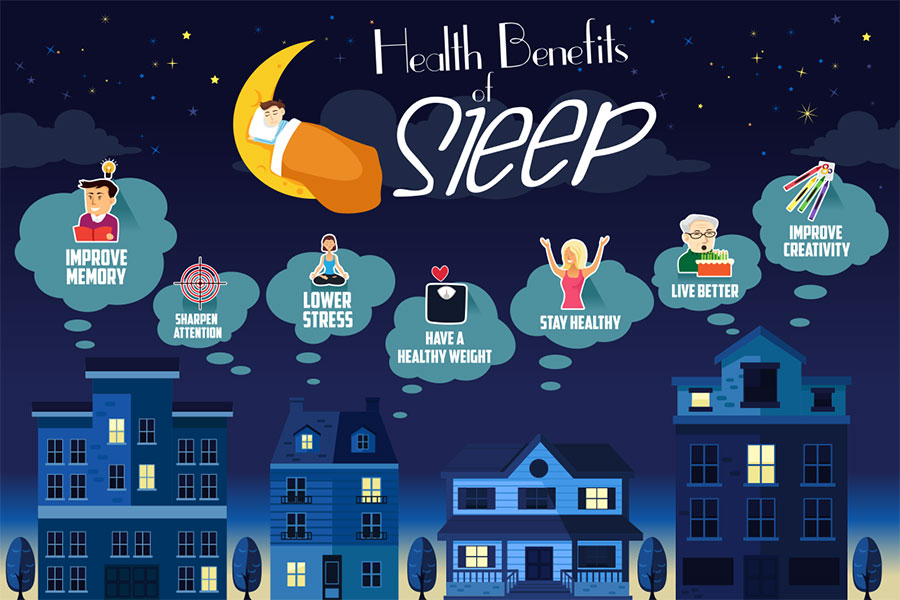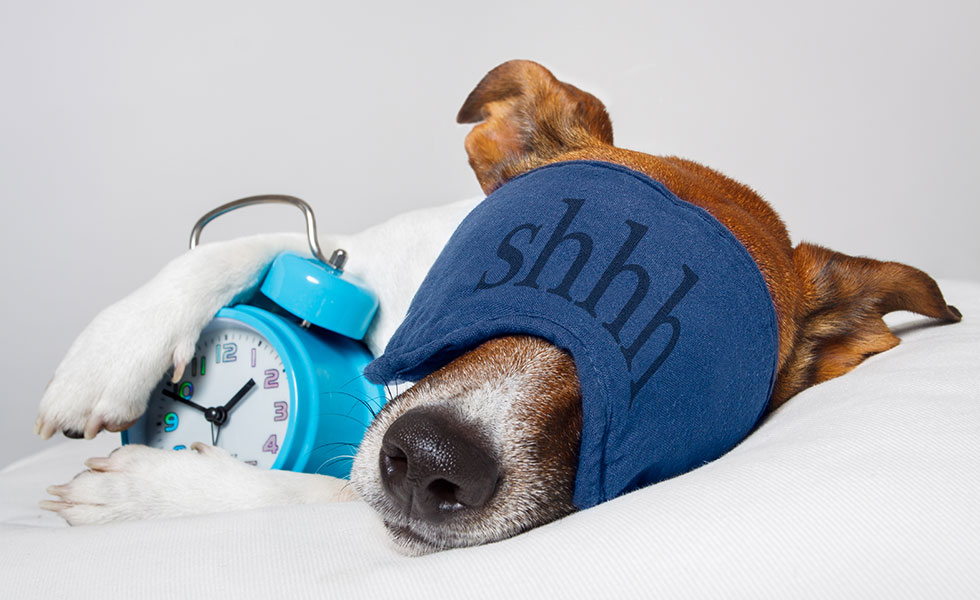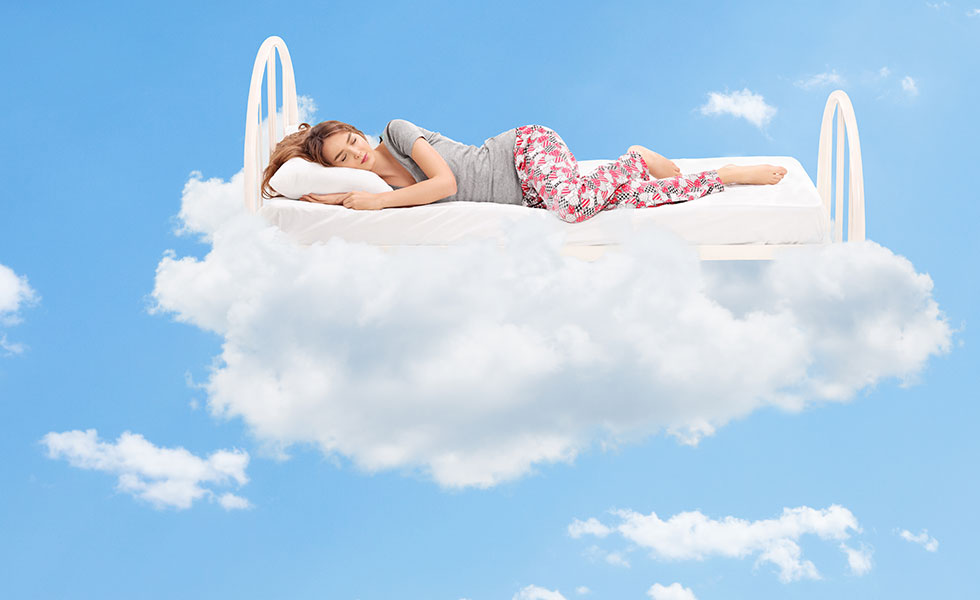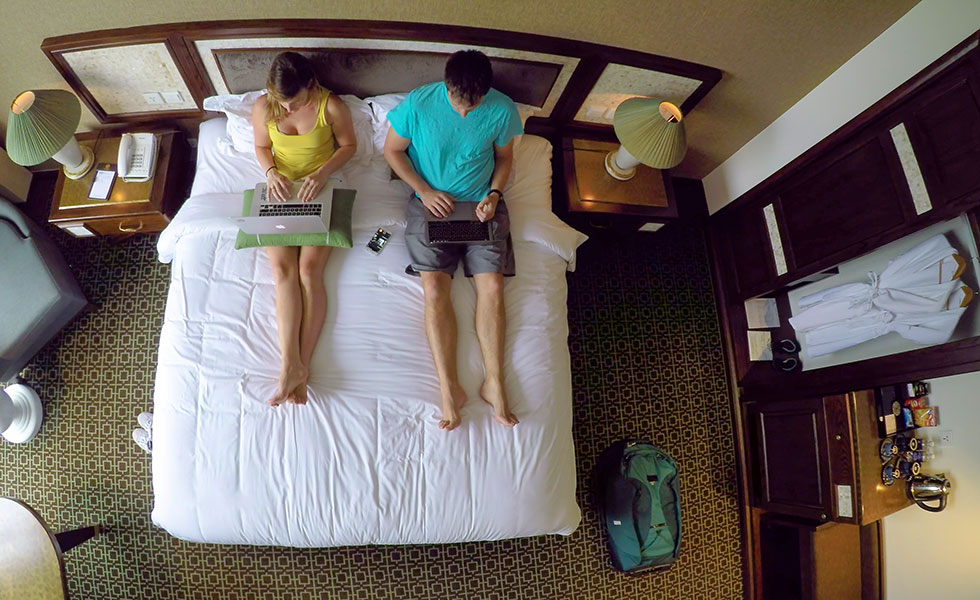Freelancing offers unprecedented freedom. One of the biggest perks is having total control over your schedule. You’re the boss. And what you say goes.
Want to join the 5 am club and finish all your work by noon? You can do that. Want to work at 2 am when inspiration strikes? You can do that, too. But there’s a fine line between working any time and working all the time.
If you want to give your freelance business the best possible chance of success, you need to take care of your body. One of the best ways you can do that is with a good night’s sleep. But why is sleep so important and how can it impact your freelance business? That’s what I’m hoping to shed a light on.
Here’s why sleep is essential for your freelance career, along with a few tips on how you can prioritize your rest as a freelancer.
Is sleep a waste of time?
We’re a culture obsessed with productivity. If you’re not hard at the grind, you’re wasting time. At least, that’s what some so-called gurus would tell you.
Hustle culture isn’t a new thing. It’s been around since the early 1900s with entrepreneurs like Thomas Edison leading the charge. Edison claimed to only sleep for 4 hours a day and demanded the same work ethic from his employees who often collapsed from exhaustion on the job.
Related Posts:
For Edison and many of his contemporaries, sleep was an unproductive waste of time. “There is really no reason why men should go to bed at all,” said Edison in 1914. Some people still take these words to heart more than 100 years later.
The internet is full of people humble-bragging about pulling all-nighters or only sleeping for 4 hours. Because, according to their logic, “you can’t afford to spend ⅓ of your life asleep”.
In reality, you can’t afford not to.
The consequences of sleep deprivation
The National Sleep Foundation recommends 7-9 hours of sleep every night for adults. But can’t you get by with less and still squeeze in a few more productive hours?
You could. But it might cost you in the long run.
Long-term sleep deprivation has been linked to cardiovascular issues, strokes, and even Alzheimer’s disease. Things aren’t much better in the short term.
Losing sleep can impact your productivity. According to a study published in the Journal of Experimental Psychology, sleep deprivation triples lapses in attention. If you’re too tired to see straight, your work could suffer.
Sleep deprivation is also associated with increased susceptibility to the common cold. If you’re struggling with a cold on top of your exhaustion, it can be even harder to get quality work done.
So, depriving yourself of sleep to get ahead could be counterproductive.

How to get better sleep as a freelancer
Ok, you get it. Sleep is important. But getting a good night’s sleep is often easier said than done.
Regardless of what anyone might tell you, we don’t all have the same 24 hours in a day. If you have kids, a chronic illness, or responsibilities that demand your time and attention, then sleep is a valuable asset in precious short supply. But that’s even more reason to prioritize it.
The more rested you are, the better you can take care of yourself and others. And the more productive you can be.
Your body is by far the most valuable asset you have. It pays to take care of it. So, here are a few ways you can prioritize sleep in your freelance work-life balance.
Set a sleep schedule
If you have trouble prioritizing your rest, try scheduling time to sleep time on your calendar. This could include the recommended 7-9 hour stint at night, or even a power nap during the day.
You don’t have to stick to a traditional sleep schedule, either. If you do your best work after dark, why not use that to your advantage? Being a freelancer also gives you the freedom to experiment with alternative sleep schedules that could offer potential benefits.
Set boundaries with clients
Once you’ve decided on your rest hours, it’s time to enforce them. Setting boundaries with clients is one of the best ways to do that.
If you work with international clients or clients in different time zones, make your response times clear. No more responding to messages at 2 am. Instead, follow up with them during your designated work hours.
Don’t forget to extend the same courtesy to your clients, too. Some freelancers like to include a reminder for their clients in an email signature. A simple “your working hours may not be my working hours” can go a long way.
Unplug before bed
When you freelance from home, work doesn’t always happen at your desk. It’s awesome to get comfortable by working on the couch or outside. But try not to blur the boundaries between your personal and work areas too much.
Try to associate your bed only with sleep. Stop blogging in bed or answer emails after lights-out. Blue light can impact your sleep, so setting a screen time curfew could also help with your sleep hygiene.

Take care of your health
Don’t forget to look after your health in other aspects, like eating a healthy diet, exercising, and taking care of your mental health.
The Sleep Foundation recommends foods like kiwi fruit, nuts, or tart cherry juice to potentially boost your sleep. And according to Jon Hopkins Medicine, just 30 minutes of exercise can impact your sleep quality the same night.
If you’re still struggling with sleepless nights even after making lifestyle changes, consult with your doctor. Your sleeplessness might be the symptom of an underlying health problem.
Conclusion
Let’s put this myth to bed–sleep is not a waste of time. That is an important aspect of both a healthy lifestyle and a productive freelancing business. Now it’s 2022. It’s time to leave hustle culture in the past, where it belongs.
When you’re a freelancer, you are your own boss. Make sure you’re a good one.
Sources:
https://www.theatlantic.com/health/archive/2014/05/thomas-edison-and-the-cult-of-sleep-deprivation/370824/
https://pubmed.ncbi.nlm.nih.gov/34325825/
https://www.lancastergeneralhealth.org/health-hub-home/2021/april/stroke-the-hidden-risk-of-sleep-deprivation
https://www.nih.gov/news-events/nih-research-matters/sleep-deprivation-increases-alzheimers-protein
https://www.sciencedaily.com/releases/2019/11/191121183923.htm#:~:text=%22Our%20research%20showed%20that%20sleep,won’t%20make%20costly%20errors.
https://link.springer.com/article/10.1007/s11187-019-00166-5#auth-Marcus_T_-Wolfe
https://www.medicalnewstoday.com/articles/319425#:~:text=A%20monophasic%20sleep%20pattern%20is,of%20time%20throughout%20the%20day.
https://www.linkedin.com/pulse/my-working-hours-may-your-vivien-fantin/?articleId=6601654052122173440
https://www.health.harvard.edu/staying-healthy/blue-light-has-a-dark-side
https://www.sleepfoundation.org/nutrition/food-and-drink-promote-good-nights-sleep
https://www.hopkinsmedicine.org/health/wellness-and-prevention/exercising-for-better-sleep





